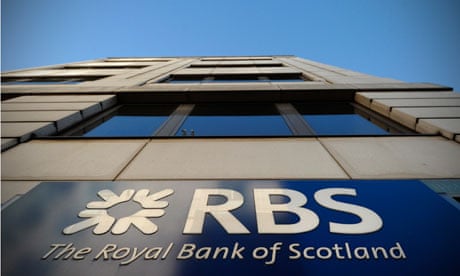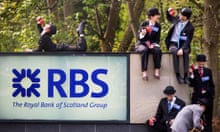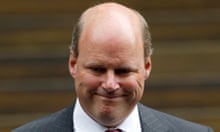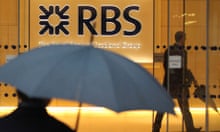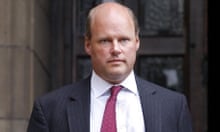The Royal Bank of Scotland has spent more than $4m (£2.5m) of British taxpayers' money on lobbyists in Washington since it was bailed out by the government, documents disclose.
Both in-house and commercial lobbyists have been paid to influence American senators and congressmen reforming US finance law since the bank's collapse and government bailout in October 2008.
The money has been handed over despite calls from ministers for RBS and other banks that have received taxpayers' handouts to refrain from hiring public affairs firms.
It comes amid criticism of the decision to give the bank's chief executive, Stephen Hester, almost £1m in a bonus this year.
According to the documents, the bank spent $4.13m from October 2008 to December 2011 on lobbyists as it tried to influence three different areas of legislation.
The bank sought influence over consumer protection, with proposed legislation such as the Consumer Overdraft Protection Fair Practices Act and the US Credit Card Act.
These proposed laws wanted to make it harder for young people to be given credit cards, have their credit limits extended and over the imposition of limits on interest rates. They also suggested a possible limit on hidden overdraft charges and penalty fees.
In 2009 and 2010, the RBS subsidiaries also lobbied on a range of banking reforms including the Dodds-Frank Wall Street Act, the largest of the US banking reform acts.
This act covers the amount capital banks must hold as well as demands that banks publish the ratio of the highest paid bankers to average wages.
The documents, which were released by the US government and list lobbying activity in the US, show the lobbyist, client, amount spent and subject of the lobbying, as per US rules.
Under the parameters of the government's proposed changes to lobbying rules in the UK, released last week as part of a discussion paper, none of the equivalent details will be available in Britain.
Unlike US lobbying regulations, David Cameron's reforms will not list in-house lobbyists, nor will they show amounts spent or subjects involved.
RBS has spent most of its efforts this year lobbying on attempts to reform "swipe" card fees. US politicians want to help small businesses by limiting the amount banks can charge for card transactions made with swipe machines.
RBS lobbies with in-house staff at two US subsidiaries, RBS Securities and Citizen's Financial. It also uses DLA Piper, the international lobbying and law firm.
Lobbying records state that "Royal Bank of Scotland, a parent company to the registrant, is interested in the issues listed".
Some documents acknowledge the bank's UK government backing, saying that "Royal Bank of Scotland and UK Financial Investments Ltd, parent companies to the client, are interested in the issues listed" – UK Financial Investments is the UK government's shareholder in RBS.
In Britain, RBS paid six lobbying firms last year. It also employs its own team of internal corporate lobbyists to influence ministers.
At the moment, most large agencies sign up to a voluntary register detailing who they work for, but there is no record of internal lobbyists employed by companies or industry groups, or who they are lobbying. Agencies are also under no compulsion to publish details of all their clients – and there is a suspicion that the names of some clients are being withheld from public scrutiny.
The communities secretary, Eric Pickles, told the Guardian in 2010: "Taxpayer-funded campaigns conducted by private lobbying firms mean … public policy is weakened and public discourse becomes a soundbite battle."
An RBS spokesperson said: "We have been focused on understanding the many proposals regarding the regulation of our industry in the US to ensure our ability to anticipate new guidelines, maintain compliance and keep our customers informed of necessary updates to our policies, products and services in a time of significant change."
